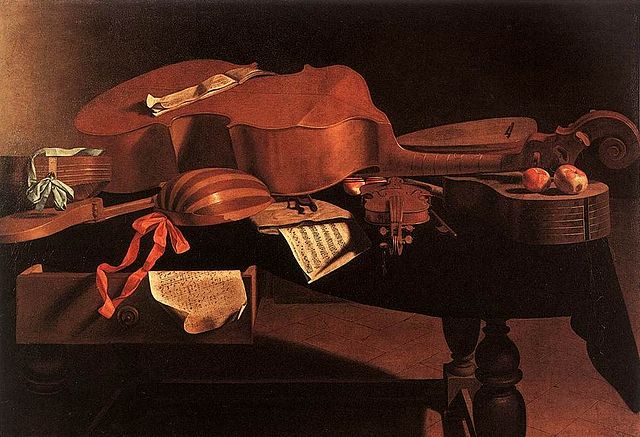In Western classical music, a motet is mainly a vocal musical composition, of highly diverse form and style, from high medieval music to the present. The motet was one of the pre-eminent polyphonic forms of Renaissance music. According to Margaret Bent, "a piece of music in several parts with words" is as precise a definition of the motet as will serve from the 13th to the late 16th century and beyond. The late 13th-century theorist Johannes de Grocheo believed that the motet was "not to be celebrated in the presence of common people, because they do not notice its subtlety, nor are they delighted in hearing it, but in the presence of the educated and of those who are seeking out subtleties in the arts".
The first page from the manuscript of J. S. Bach's Baroque music era motet, entitled Der Geist hilft unser Schwachheit auf (BWV226)
Classical music generally refers to the art music of the Western world, considered to be distinct from Western folk music or popular music traditions. It is sometimes distinguished as Western classical music, as the term "classical music" can also be applied to non-Western art musics. Classical music is often characterized by formality and complexity in its musical form and harmonic organization, particularly with the use of polyphony. Since at least the ninth century it has been primarily a written tradition, spawning a sophisticated notational system, as well as accompanying literature in analytical, critical, historiographical, musicological and philosophical practices. A foundational component of Western culture, classical music is frequently seen from the perspective of individual or groups of composers, whose compositions, personalities and beliefs have fundamentally shaped its history.
A youth orchestra performing
An illuminated opening from the Chigi codex featuring the Kyrie of Ockeghem's Missa Ecce ancilla Domini
Baroque instruments including hurdy-gurdy, harpsichord, bass viol, lute, violin, and baroque guitar
Joseph Haydn (1732–1809), portrayed by Thomas Hardy (1791)





